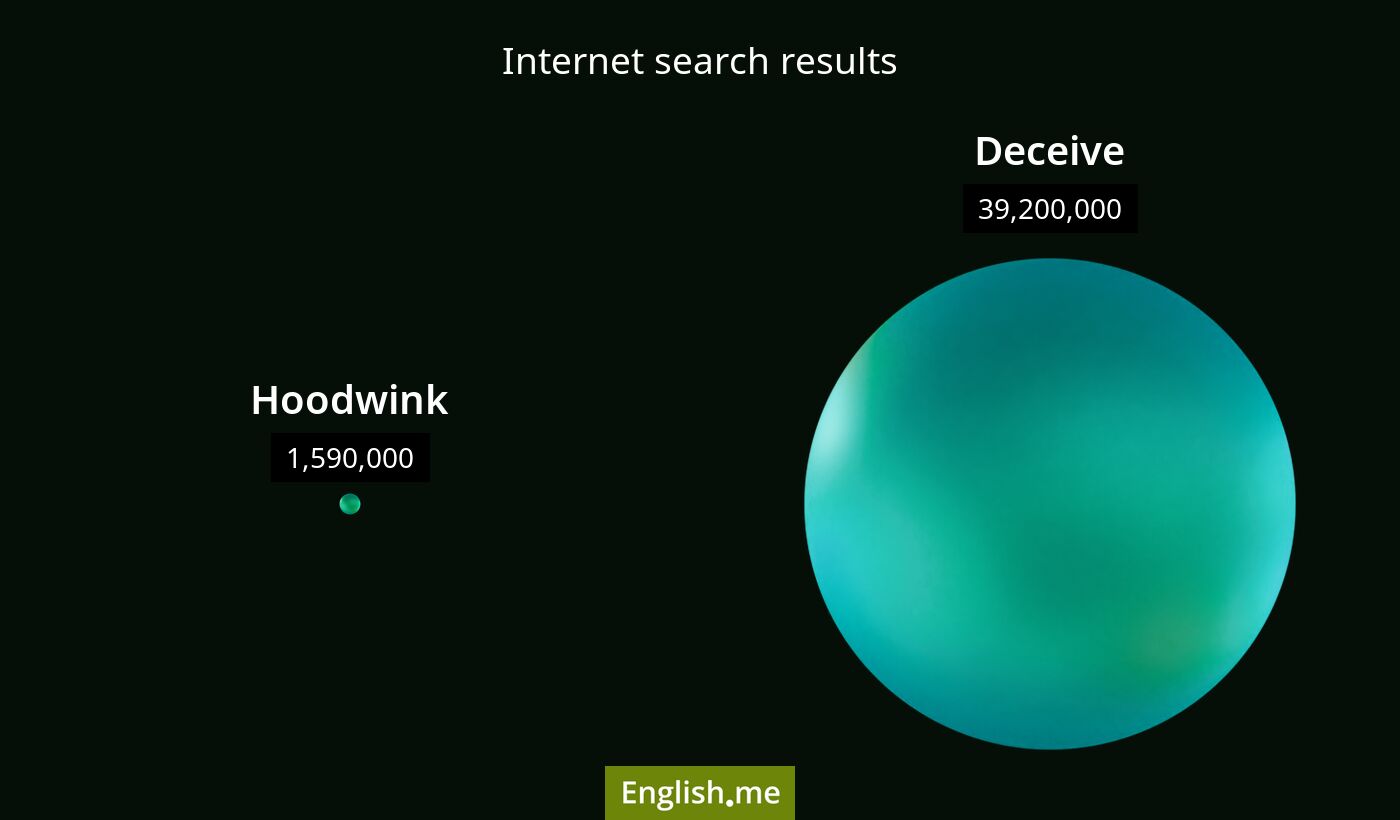"Hoodwink" vs. "deceive": shades of deception
Reviewed and edited by  Lloyd Cooper 25/12/2024, 02:51
Lloyd Cooper 25/12/2024, 02:51
English.me team member

 What is similar?
What is similar?
Both "hoodwink" and "deceive" are verbs meaning to mislead or trick someone into believing something that is not true.
 What is different?
What is different?
"Hoodwink" often implies tricking someone through cunning, deception, or false appearances, sometimes involving elaborate schemes, whereas "deceive" is a general term for causing someone to accept as true or valid what is false or invalid.
 Which one is more common?
Which one is more common?

 Examples of usage
Examples of usage
Hoodwink- The scammer hoodwinked her into investing in a fake company.
- They were hoodwinked by the magician's clever illusions.
- He tried to hoodwink the committee with forged documents.
- She deceived her parents about where she was going.
- The advertisement was meant to deceive consumers.
- He deceived himself into believing he could win without practice.

 English
English español
español française
française italiano
italiano deutsche
deutsche 日本語
日本語 polski
polski česky
česky svenska
svenska Türkçe
Türkçe Nederlands
Nederlands